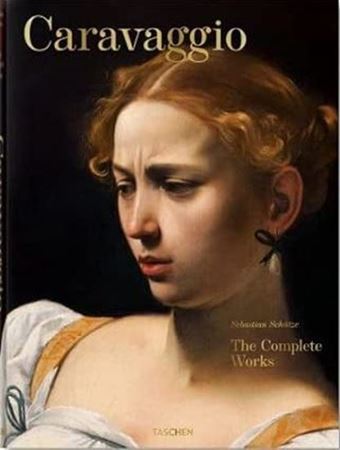

NOVEDADES
LA HABITACION DE ECHAR DE MENOS
Óscar tiene un nudo en la garganta desde que Papá no está. Se enfada mucho y ya no disfruta jugando con sus amigos. Cree que Mamá no le entiende; pero, un día, ella le enseña un lugar especial: la habitación de echar de menos.
1,150
863
ALCARAVEA
La alcaravea es una planta silvestre de flores pequeñas. Sus semillas tienen distintos usos que podrían replicar los cuentos de este libro: • Medicinal: en infusión, esta especia calma los cólicos infantiles (muchos son los niños que lloran aquí, a pesar de las nanas), pero, además, su uso tópico sirve para limpiar y cicatrizar heridas, sean las de madres derrotadas por la vida, las de un visir enamorado o las de un hermanastro tímido. • Culinario: un sabor, amargo y dulce a la vez, condimenta la mayoría de los relatos. En ellos, hay desolación y hasta horror en ocasiones, pero siempre se asoma la luz de la ternura que salva. • Relajante: su aroma, usado en aceites y lociones, tiene una cualidad tranquilizante que los protagonistas habrían agradecido. Si aún les interesa conocer otras propiedades de Alcaravea, entren en sus páginas y descubran sus beneficios.
1,150
863
LUNA PARK
El vacío identitario de los llamados suburbios de Nueva York, la discriminación, la vigilancia vecinal, la impostura del movimiento woke, la normalización de los suicidios diarios, la degeneración de gran parte de la academia norteamericana, la enfermedad mental y sus laberínticas soluciones, la atroz soledad y la ternura de los inesperados encuentros que suceden como consecuencia. Esto son algunos de los temas y sentimientos paradójicos en ocasiones que recorren los cuentos de Luna Park. Y, pese a todo, el de Marina Perezagua no es un libro oscuro, sino que el humor, la ironía y la contradicción están presentes en estos cuentos como elementos vitales y lúdicos. Un libro implacable, sin medias tintas para, entre otras cosas, describir una ciudad y un tiempo imposibles de describir.
1,150
863
LA NIETA DE PUSHKIN
Pushkin nunca tuvo una nieta, o acaso la desconocemos, por eso este libro de cuentos es dos cosas: la audacia de la búsqueda de personajes azarosos, perdidos y esenciales, y un viaje hacia territorios desconocidos. Los escenarios son múltiples: de La Habana al desierto del Rajastán, de Saint-Nazaire a Teherán, de Rusia a Miami o Lima. El hilo conductor es el tiempo, la nostalgia, la pérdida, pero también la aventura, el humor, y la recuperación del pasado. Un salto a un vacío lleno de sentidos. La nieta de Pushkin es un libro híbrido entre el cuento y el viaje en clave de autoficción. Si toda literatura es un ejercicio de solapamiento autobiográfico, Ronaldo Menéndez rompe las rasgaduras de ficción para filtrar un yo, un nosotros, que envuelve al lector y le hace viajar con él. Y por encima de todo, un lenguaje que es en sí mismo una búsqueda y una fundación, una manera de entender la literatura. Una prosa enérgica, que nos traslada con pulso propio, a la mejor renovación de la literatura latinoamericana de este primer tercio del siglo xxi.
1,150
863
MADE IN AMERICA: MI HISTORIA
"Es una historia sobre el espíritu empresarial, el riesgo, y el trabajo duro, y sobre saber a dónde quieres ir y estar dispuesto a hacer lo que sea necesario para llegar allí. Es una historia sobre creer en tu idea, incluso cuando tal vez otras personas no creen en ella, y sobre apoyarte en tus mejores fortalezas". - Sam Walton
Conozca a un genuino héroe popular americano proveniente del mero centro del corazón de los Estados Unidos: Sam Walton, un hombre que convirtió una única tienda de pueblo en Walmart, el negocio minorista más grande del mundo. Rey mercantil indiscutible de finales del siglo XX, Walton nunca perdió el toque de hombre común. Genuinamente modesto, pero siempre seguro de sus ambiciones y sus logros, Walton comparte su extraordinaria biografía con un estilo sincero y directo, y en sus propias palabras inimitables recuenta la historia de la inspiración, el corazón y el optimismo que lo impulsaron a alcanzar el sueño americano.
1,150
863
EL AMOR EN LOS TIEMPOS DEL (E.ESP) (BOL)
García Márquez traza la historia de un amor que no ha sido correspondido por medio siglo. Aunque nunca parece estar propiamente contenido, el amor fluye a través de la novela de mil maneras: alegre, melancólico, enriquecedor, siempre sorprendente.
«La de don Gabriel es una sombra que ilumina. Y sigue presente [...] porque es un tipo que nos pertenece todos, porque es un clásico.»
Darío Jaramillo
La historia de amor entre Fermina Daza y Florentino Ariza, en el escenario de un pueblecito portuario del Caribe y a lo largo de más de sesenta años, podría parecer un melodrama de amantes contrariados que al final vencen por la gracia del tiempo y la fuerza de sus propios sentimientos, ya que García Márquez se complace en utilizar los más clásicos recursos de los folletines tradiciones. Pero este tiempo -por una vez sucesivo, y no circular-, este escenario y estos personajes son como una mezcla tropical de plantas y arcilla que la mano del maestro moldea y con las que fantasea a su placer, para al final ir a desembocar en los territorios del mito y la leyenda. Los jugos, olores y sabores del trópico alimentan una prosa alucinatoria que en esta ocasión llega al puerto oscilante del final feliz.
«Era inevitable: el olor de las almendras amargas le recordaba siempre el destino de los amores contrariados. El doctor Juvenal Urbino lo percibió desde que entró en la casa todavía en penumbras, adonde había acudido de urgencia a ocuparse de un caso que para él había dejado de ser urgente desde hacía muchos años. El refugiado antillano Jeremiah de Saint-Amour, inválido de guerra, fotógrafo de niños y su adversario de ajedrez más compasivo, se había puesto a salvo de los tormentos de la memoria con un sahumerio de cianuro de oro.
Encontró el cadáver cubierto con una manta en el catre de campaña donde había dormido siempre, cerca de un taburete con la cubeta que había servido para vaporizar el veneno.»
1,150
863

























